Department
Talk about how the theories of teaching used in the Prac Department come from this group…
Educational psychology focuses on how people learn and retain knowledge. This is done to improve the learning process and promote educational success for all students. Beyond this, they also study social, emotional and cognitive processes involved in learning and apply their findings to improve the learning process. Bob Peter’s thoughts on this…
According to the 1970 Annual Report Bob Peter’s changes of reducing the passive learning had been reduced by 30% and there was much emphasis on laboratory exercises such as role analysis, role simulation, verbal learning, achievement motivation, and depth perception. The topics were directly related to the classroom situation.
As a result, considerable usage of one-way screens was useful for role performance, child observation and replication of experiments.
In later years, students were to complete brief child studies consisting of structured observations and responses by the student. These were designed to be completed in 20 minutes.
This department was also responsible for setting up a remedial reading clinic for students, who wished to speed read.
Programs
- The classroom as a social system
- Social roles of teacher and pupil
- The school and the community
- Culture and Education
- Curriculum
- Education and Social Change
- Social deviancy
- Community studies
- Role Performance and Classroom Technique
- Perception
- Developmental features
- Motivation
Research and Publications
Staff
Phil Smith (HOD)
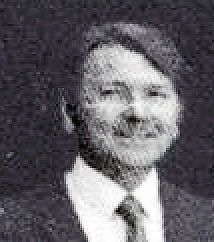 Phil Smith, the inaugural Head of Education and Psychology, had been involved in running remedial reading programs at UWA and his expertise and encouragement led the way for specific course units and experiential programs for teacher education students interested in developing their skills in helping children with developmental learning problems.
Phil Smith, the inaugural Head of Education and Psychology, had been involved in running remedial reading programs at UWA and his expertise and encouragement led the way for specific course units and experiential programs for teacher education students interested in developing their skills in helping children with developmental learning problems.
He set up the clinic to provide students with experience of techniques in remediation; and to allow staff members the opportunity of maintaining a practical concern with the teaching of primary school pupils
Mike Lee
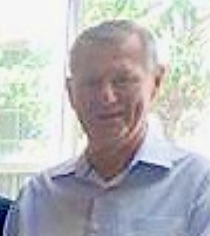 Mike Lee’s research and further study was in the education of exceptional children and was also involved in establishing the Dyslexia Association of Western Australia in 1969.
Mike Lee’s research and further study was in the education of exceptional children and was also involved in establishing the Dyslexia Association of Western Australia in 1969.
Mike had a powerful and influential role in developing course content leading to specialised undergraduate courses and eventually the establishment of the Graduate Diploma in Special Education in the mid-1970s.
Sybe Jongeling
Sybe Jongeling came to Australia from Groningen, Netherlands.
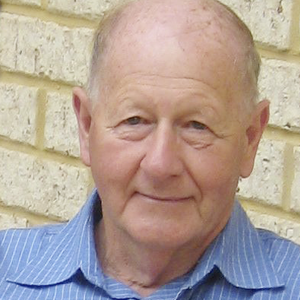
He completed matriculation at Kent Street SHS in 1955 and studied at UWA. Sybe graduated from Claremont Teachers’ College in 1957. His first
appointment was to Cunderdin District High School in 1958. From 1959 to 1960 he taught science and mathematics at Busselton High School, where he met is
life-long partner, Dawn Bedford who was Home Economics teacher at the school.
While in Busselton, Sybe continued his UWA studies by external tuition and on returning to Perth in 1961 as a part-time student. After completing his BA in
1963, he continued part-time studies at UWA and completed a Dip Ed, followed by a BEd and MEd. As the predominant focus in the Education Department was
on Open Plan classrooms, Sybe’s interest was in Cooperative Small Group Learning and he completed a PhD at Murdoch University in this area.
From 1961 to 1964 Sybe taught Physics and Mathematics at Governor Stirling Senior High School, he became Senior Master Science at Kalamunda in 1965 and Senior Master Mathematics at BunburySenior High School in 1996. As the inaugural Senior Master Mathematics at Churchlands Senior High School (1967-1970) Sybe enthused a small group of students to build and statistically test a small computer for which the group was awarded the inaugural Mathematics Talent Quest Shield.
In 1971 Sybe was promoted to lecturer in Psychology and Education at Mount Lawley Teachers’s College (later WACAE and now ECU), he became Senior Lecturer, then Associate Professor and completed his career as Director of Research and Graduate Studies at Edith Cowan University. His research interests were in Higher Education, Small group Learning, Measurement and Evaluation and Research Methodology. On retirement Sybe continued teaching groups of Indonesian Bachelor of Business students in research methodology, statistics and computing at the Joondalup Campus and in Indonesia.
Laurie Summers
…
Rod Underwood
Rod Underwood lectured at MLTC from 1972-1975. He also had leadership roles in WACAE.
His memberships included being Chairman of the Western Australian Palliative Care Research Group, Perth, 1995, being a development consultative committee Western Australian Police Force, Perth, 1992-1995 and member of the Edith Cowan University Foundation, 1991-1995.
He has also held membership in the Australian Council of Deans of Health Science, Australian Psychological Society, Australasian Association for Criminal Justice Administration Educators, Australian consortium for Social and Political Research, Delta Kappa Pi.
Ian Kerr
…
Irene Froyland
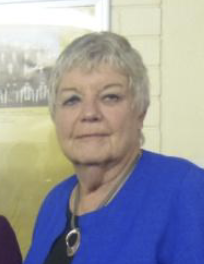 Irene Froyland was the Director of the Centre for Police Research in the Faculty of Health and Human Sciences. She has a Masters degree in Psychology and a PhD in Criminology.
Irene Froyland was the Director of the Centre for Police Research in the Faculty of Health and Human Sciences. She has a Masters degree in Psychology and a PhD in Criminology.
Her research career commenced in 1991 following her return from Canada where she completed her doctoral studies.
Initially, she was appointed as Head of the Department of Justice Studies but was then invited to direct the Centre for Police Research after an agreement was signed with the WA Police Force and the University.
Irene’s research interests lie in police-related issues and in the application of the justice system. She commenced her research career employing quantitative, experimental methodologies but has since moved into phenomenological, interpretive and evaluative techniques.
Irene’s research is about discipline, priorities and time.
Janina (Corina) Trotman
Janina Trotman lectured in the School of Education. Edith Cowan University, Perth. Her commitment to the education of girls and women has involved her in a quarter of a century of researching, publishing and teaching about gender in education.
Janina Trotman – Interview with Marjorie Bly and Rivka Niesten
Brenda Buchanan
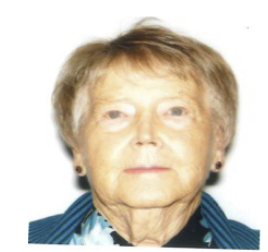 Brenda began her B.A. studies as a part time student while working in commercial offices
Brenda began her B.A. studies as a part time student while working in commercial offices
then continued while a student of Claremont Teacher’s College, also when teaching in the High Schools of the State Education Department.
After completion of the B.A. she was appointed to the Guidance Branch of the Education Department and continued within the high schools until she was appointed to lecture in Education and Psychology at Mt. Lawley Teacher’s College, in 1972. Brenda was the principal coordinator for the Clinic in Remediation.
She remained at MLTC through its various name changes, while continuing to study for a Diploma of Education, a B.Ed. and further studies in Psychology to become
a Registered Psychologist.
In 1983, Brenda was appointed as a Student Counsellor and worked in that field until retirement at the end of 1991. After retirement she engaged in voluntary activities within migrant groups and other areas within society and was interested in interfaith activities, the Arts
and Politics.
Obituary – 31 January 2018
BUCHANAN (Brenda): Brenda Buchanan was a teacher and academic. She was born in Merredin on 10 December 1931 and died in Perth on 31 January 2018.
Brenda surrounded herself with an enduring network of academic colleagues, neighbourhood friends and members of her church. She maintained her family connections, friendships and affiliations with great care and love.
Brenda lived proudly as an independent career woman; an educator of teachers at Mount Lawley College, the Western Australian College of Advanced Education and Edith Cowan University.
In retirement she created a beautiful garden for quiet moments, for entertaining friends and as a magical habitat for her beloved cats. She will be missed.
Michael Hennessy
In a prestigious education career Michael served as a school principal in WA within the Catholic system, spent a few years teaching in Sweden and then served the WA Education Department in several schools as well as lecturing at Curtin and Edith Cowan Universities.
Michael Hennessey – Testimony
Murray Swain
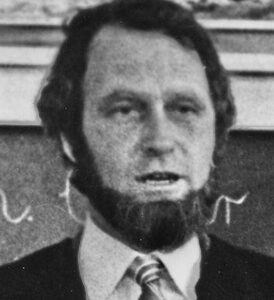
Neil Tuckwell
Deceased 12th Nov, 2022 MNS – cousin to Alan True – more info required
Brian Haines
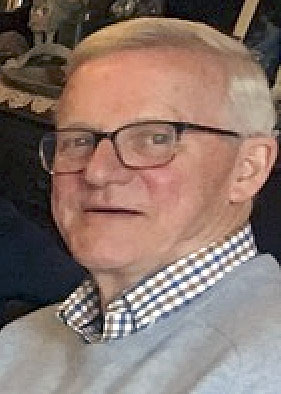
I joined MLCAE in 1975, from being Deputy Principal at Wagin DHS in 1974. I was initially a Project Officer, working under Neil Tuckwell, then progressed to Lecturer in Education.
I went on leave 1980 to Oxford University, and returned to find myself ‘attached’ to the newly established WAPPA as an “Associate” to Geoff Gibbs (therein lies a story or two!).
I spent a few very happy and enlightening) years with WAAPA, then back to lecturing in Education Faculty (Sociology of Education in broad terms). I taught at ML, Nedlands, (and Joondalup in the very early days, with one building and kangaroos outside my lecture room window at 5pm) and then Churchlands, until my resignation in 1991.
From 1991 to 2000 I worked as an Information Management consultant, highlighted by my time as a co-Director of Dow Digital, a web design and development company we set up in 1994 (the Internet horse and buggy days!)
I went back to web development project management for various government and private enterprise organisations from 2000 to 2009. From 2009 – 2014 I was a consultant and then a Business Manager for the establishment and building of the Pawsey Supercomputing Center at Technology Park – the initial component of the still-developing international Square Kilometre Array project located in the Kimberly area.
I retired as a full-time worker in 2014. I live in Subiaco, and continued with my computer-based interest in information management/productivity and pursuing new hobbies in woodworking, and old passions in snorkelling and scuba diving.
Patricia Formentin
Trish Formentin, a lecturer in education at Mt Lawley campus of WACAE was interested in providing education for special education teachers as there had previously been no formal training in teaching children with intellectual disabilities.
Kay Jones
…
Helen Melville-Jones (Chomley)
I was appointed to MLTC in May 1975 (as Helen Melville Jones) and spent the rest of my working life there, as it was transformed into a member of the WACAE and finally ECU.
Anthony Monks
…
James Rainford
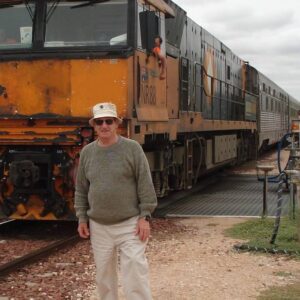 James Rainford came to MLTC from Manchester, 1972.
James Rainford came to MLTC from Manchester, 1972.
Steven Saunders
…
James Cameron
…
Gordon Cooper
…
James Plumridge
…
Peter Short
…
Judith Towler
…
Carolyn Williams
…
Adrian Young
…
Marianne John
…
Stephan Stahlsmith
…
Derrick Tomlinson
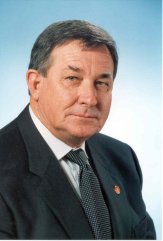 Derrick Tomlinson was a high school teacher and in 1977, a lecturer at Mt Lawley College of Advanced Education.
Derrick Tomlinson was a high school teacher and in 1977, a lecturer at Mt Lawley College of Advanced Education.
He was seconded to the Schools Commission in Canberra to research alternative methods of funding schools and eventually became a member of the East Metropolitan Region, WA parliament.
Joan Gruskin
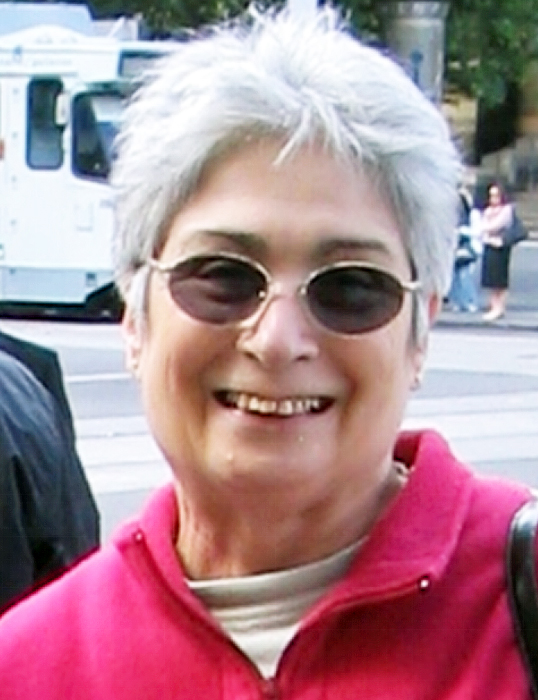
I commenced working in the department in February 1974 and continued working there until 1982. It was considered that I had to leave working at Mount Lawley because I was over-qualified and there was an amalgamation of the four teachers’ colleges taking place, which resulted in the formation of the Western Australian College of Advanced Education (WACEA).
My role in the Education and Psychology Department was as Secretary. I was responsible to Sybe Jongeling who was Deputy Head of Department and Mike Lee, Head of Department.
My office was G.03, which was originally designed to be a storeroom, but converted into an office. It was rather dull with only artificial light until a window was finally erected to give a view into the passage. The main reason for cutting a window in the wall was not to give the occupant a view to the outside, but to stop unscrupulous persons from removing equipment from the room. Early, rather clumsy and heavy, tape recorders were used more often in lectures and tutorials, and they used to disappear quite often from my office. Maintenance thought it would be a good idea to install a window so anyone walking past could see any intruders “borrowing” expensive equipment. It was also a good idea to have a window as it was less claustrophobic.
At one stage the department had 18 lecturers and I did work for 10 staff. While I was working at Mount Lawley, I also helped to organise a curriculum conference geared for special education teachers. I also did work for representatives from the WA Fire Brigade, a specialist course organized by Laurie Summers and Sybe Jongeling. This increased their knowledge of modern lecture design, presentation and examination procedures, which they could introduce into their own training programs. It was also a time when early computers gained importance in tertiary education.
I fondly remember that on the final day of the Fire Brigade course, Sybe got them all in a small room in the Maths/Science building to show them how a rather big, clumsy, early IBM computer would operate. When Sybe tried to turn it on – nothing happened. He checked all connections and was about to give up, when one of the Fire Brigade staff told him, with a smile on his face, that he had forgotten to turn on the power switch on the wall. On the final graduation ceremony, Sybe was presented with a 3-point power plug mounted on a specially designed board! How embarrassing!
I was very happy working with members of the Education and Psychology Department and was very sad when I had to leave.